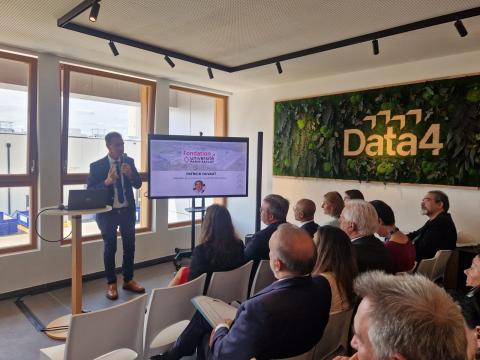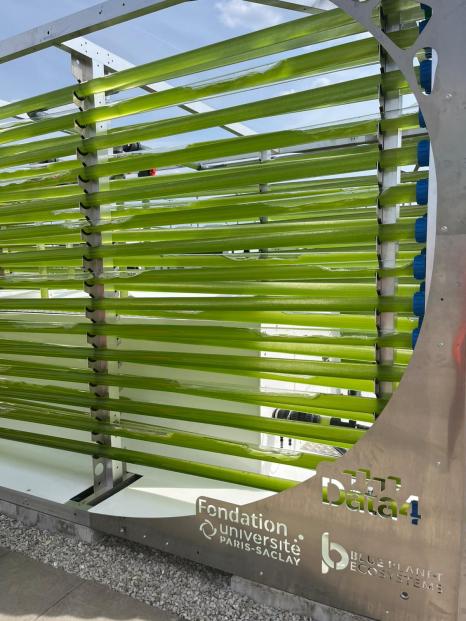
Data4 and the Université Paris-Saclay Foundation transform waste heat into algae biomass
Data4, a leading European data centre operator, and the Université Paris-Saclay Foundation have announced the launch of a ground-breaking proof-of-concept project aimed at transforming heat from its servers into biomass. This ambitious project, deployed at Data4’s Marcoussis site, paves the way for a new generation of biocircular data centres.
Developed as part of the ABIOMAS Innovation Chair at the Université Paris-Saclay Foundation, and in partnership with the Département de l’Essonne, the project is coordinated by a multidisciplinary team of experts from Université Paris-Saclay, CentraleSupélec, AgroParisTech, the start-up Blue Planet Ecosystems and Data4.
Faced with the growing energy needs of data centres worldwide, particularly with the rise of AI, this initiative explores new ways of reusing heat. The biocircular data centre replicates natural photosynthesis, using heat generated by the data centre and captured CO2 to grow algae. The algae can then be recycled as biomass, creating new sources of circular energy and bioproducts for cosmetics or agri-food industries.
When data feeds the planet: tackling food security and energy transition challenges
“Nearly 18 terawatt-hours of energy are available in our data centres in France, but are currently unused,” explained Linda Lescuyer, Head of Innovation for the Data4 group. “With this project, we aim to transform this heat into energy. Thanks to the biocircular data centre module, we have the opportunity to create a new ecological and economic resource for the region, and therefore jobs, which can develop with data centres.”
"We are delighted that the first biocircular data centre to combine digital transformation and the ecological transition has come to fruition thanks to the ABIOMAS chair supported by the Université Paris-Saclay Foundation. The aim of this innovative chair is to develop biomass, in the Essonne (Paris) region, in all its forms and for all types of use. It has brought together the university's scientific expertise in physics, chemistry, agriculture and digital technology, which has helped to remove fundamental obstacles," said Patrick Duvaut, Vice-President at Université Paris-Saclay and President of the Université Paris-Saclay Foundation.
The current project is based on a module containing 1,000 litres of a single-cell algae culture (Chlorella). A second project, which is currently being studied, would involve the installation of 600-litre modules on 900m2 of data centre walls. This will enable the project to scale up, producing approximately 20 kg of algae per day and capturing 36 kg of C02 per day.
"This biocircular data centre perfectly illustrates Essonne's commitment to a concrete and promising ecological transition. This project, the only one of its kind in France, combines scientific excellence, technological innovation, sustainable development and local economic drive. It is a testament to our region's ability to bring together stakeholders from research, business and local authorities to work together to invent sustainable solutions for climate change challenges," said François Durovray, President of Essonne.
The Blue Planet Ecosystems team added: "With this project, we are demonstrating that it is possible to transform the waste heat from digital infrastructures into a living resource. This module is not just a tool for capturing CO₂, it is a technological building block towards automated urban aquaculture, capable of producing sustainable proteins locally and reusing energy where it is available.”

